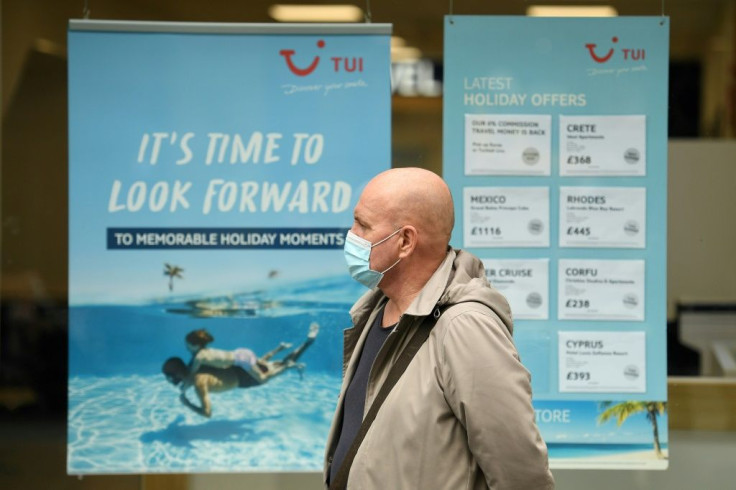TUI Confident Of Travel Recovery Despite Annual Loss
German travel giant TUI on Thursday posted an annual loss of more than three billion euros as the pandemic devastated tourism, but the group said it was optimistic vaccines would boost travel demand in 2021.
"The pandemic is not over, but there is light at the end of the tunnel and the prospects for tourism and for TUI are good," the world's largest tour group said in a statement.
TUI swung to a 3.1 billion euros ($3.7 billion) loss for its 2019-2020 fiscal year, which ended on September 30, compared with a profit 416.4 million euros the previous year
Annual revenues collapsed 58 percent to 7.9 billion euros, after the first wave of the coronavirus in the spring forced TUI to cancel flights, cruise holidays and close hotels across the globe.
A recovery that began in the summer was cut short when a second wave of Covid-19 cases brought a new swathe of restrictions in many countries.
TUI nevertheless expects activity to take off again in 2021 as governments ready for mass vaccination campaigns against Covid-19 that "will significantly increase demand for summer holidays in 2021".

"2021 will be a transition year for tourism, and 2022 is expected to see a return to pre-corona levels," the company said.
TUI currently has around 2.5 billion euros in cash, thanks to the release of a 1.8 billion euro public-private support plan earlier in December.
The company already received a 1.2-billion-euro rescue package from the German government in August and a 1.8-billion-euro government loan in April.
The Covid-19 crisis is set to have a lasting impact on the group.
TUI began a vast restructuring plan in May, which includes scrapping 8,000 jobs worldwide and 20 percent of its aircraft fleet.
"The rapid measures to cut costs and secure liquidity are important for the group," chief executive Fritz Joussen said.
Over the past year, the company, which was already struggling before the pandemic in an evolving travel market, shrunk its payroll by 30 percent, from 71,000 to 48,000 people worldwide.
© Copyright AFP {{Year}}. All rights reserved.





















